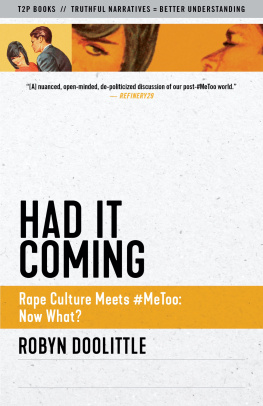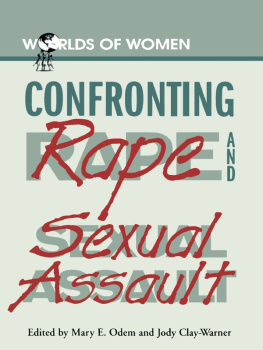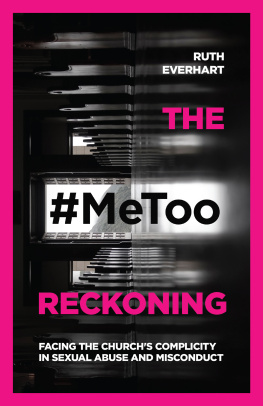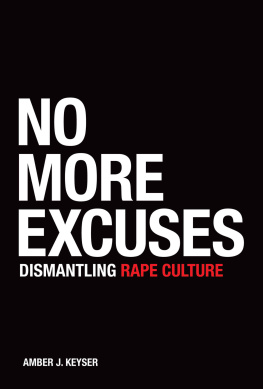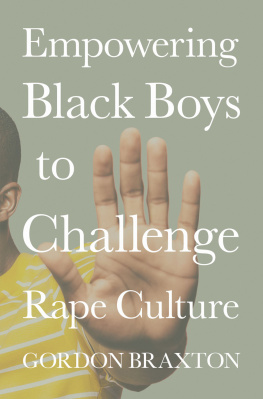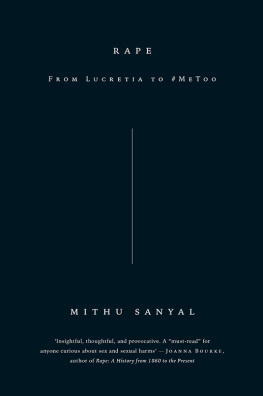Contents
Page List
Guide
Praise for Black Box: The Memoir That Sparked Japans #MeToo Movement
These are not the words of a victim, but of a serious journalist. The vital urgency of Shiori Itos record forces us to recognize the existence of the many similar cases that have gone unrecorded. Behind her words are the cries of countless others who did not speak up because of the intense pressure against them. I hope that these cries will not be silenced. I hope that someday we can progress further to a world where there are no such screams. This book is a step toward making such hopes not an impossible dream. SAYAKA MURATA, author of Convenience Store Woman
Such a beautifully written book, which means so much more when layered with the pain and injustice it covers. Black Box is Shiori Itos story, but its all of our realities. AMY RICHARDS, coauthor of Manifesta: Young Women, Feminism, and the Future
Shiori Ito gives a fascinating insight into Japanese social and legal mores, from quasi-rape to the way women are treated in the media. Her account of her courageous fight against sexual violence rejects the harmful trope of the cardboard victim, reclaiming her identity as an adventurous, lively, determined, blithe spirit. SOHAILA ABDULALI, author of What We Talk About When We Talk About Rape
The crime of rape was rarely discussed and seldom prosecuted before Shiori Ito decided to charge her attacker. Itos determination to seek justice, for herself and for other survivors of sexual violence, is admirable and inspiring. ANNE SUMMERS, author of Damned Whores and Gods Police
Astonishingly courageous. Itos determination to bring not simply justice for her own life but justice to survivors everywhere is a blueprint for systemic change. This is how you change the world. Shiori Ito is my hero. RACHEL LOUISE SNYDER, author of No Visible Bruises: What We Dont Know about Domestic Violence Can Kill Us
Itos unshakeable commitment to demanding the world she deservesthe world we all deserveshines from every page. Her story is a master class on how to refuse to be silenced, even when an entire government is set against you. JACLYN FRIEDMAN, coeditor of Yes Means Yes: Visions of Female Sexual Power and a World without Rape
Black Box is the courageous testimony of a young woman who risks everything to tell the truth about what happened to her. Relying on Itos training as a journalist, the book is deeply researched and impeccably reported. With clarity and reflection, Itos voice makes a vital addition to the chorus of those impacted by sexual assault who tell their stories in order to change the future to be a safer, better place for all. GRACE TALUSAN, author of The Body Papers
Shiori Ito radiates with passion and conviction for seeking the truth. RYUICHI SAKAMOTO, musician and activist
Black Box is a moving study of sexist Japan, political corruption, police failure to investigate rape, and justice sought and won by Itos own efforts and investigation.JAKE ADELSTEIN, author of Tokyo Vice: An American Reporter on the Police Beat in Japan
While sexual harassment and sexual assault are unfortunately universal issues that are by no means unique to Japanese society, Itos painful yet powerful account of being raped provides a unique and valuable exposition of the ways in which victims have often been deterred from coming forward. KUMIKO FUJIMURA-FANSELOW, professor emerita, Toyo Eiwa University
Black Box
THE MEMOIR THAT SPARKED JAPANS #METOO MOVEMENT
SHIORI ITO
TRANSLATED BY ALLISON MARKIN POWELL

Published in 2021 by the Feminist Press
at the City University of New York
The Graduate Center
365 Fifth Avenue, Suite 5406
New York, NY 10016
feministpress.org
First Feminist Press edition 2021
Copyright 2017 by Shiori Ito
Translation copyright 2021 by Allison Markin Powell
All rights reserved.
Original Japanese edition published by Bungeishunju Ltd., Japan, in 2017. English translation rights for North America reserved by Feminist Press under the license granted by Shiori Ito, arranged with Bungeishunju Ltd., Japan, through Japan Uni Agency Inc., Japan.
The translator gratefully acknowledges the U.S. Department of Justice, Office of Justice Programs, National Institute of Justice, for allowing the reproduction, in part or in whole, of the sidebar Learning from Victims, by Gail Abarbanel, which appeared in NIJ Journal Issue 243 with the article Drug-Facilitated Rape: Looking for the Missing Pieces, by Nora Fitzgerald and K. Jack Riley. The opinions, findings, and conclusions or recommendations expressed are those of the speaker(s) and do not necessarily represent the official position or policies of the U.S. Department of Justice.
| This book was made possible thanks to a grant from New York State Council on the Arts with the support of Governor Andrew M. Cuomo and the New York State Legislature. |
| This book is supported in part by an award from the National Endowment for the Arts. |
No part of this book may be reproduced, used, or stored in any information retrieval system or transmitted in any form or by any means, electronic, mechanical, photocopying, recording, or otherwise, without prior written permission from the Feminist Press at the City University of New York, except in the case of brief quotations embodied in critical articles and reviews.
First printing July 2021
Cover photograph by Tadayuki Minamoto
Cover design and text design by Drew Stevens
Library of Congress Cataloging-in-Publication Data is available for this title.
PRINTED IN THE UNITED STATES OF AMERICA
CONTENTS
To all of the people who have supported me to this day, with gratitude
INTRODUCTION
On May 29, 2017, I held a press conference at the Tokyo District Court. The purpose of the press conference was to publicize my appeal to the Committee for the Inquest of the Prosecution to reopen the investigation in the report I filed claiming to have been raped, which the Public Prosecutors Office had decided to drop.
The incident in question had in fact occurred more than two years earlier.
The press conference was likely the first time many of those present learned of the assault. Yet, over the course of those two years, how many times had I repeated the same storyto the police, to lawyers, and to various members of the press?
At the time, an amendment to the criminal law concerning rape crimes had been proposed in the National Diet, as the Japanese parliament is called. The criminal code regarding rape crimes dated back to 1907, without any major revisions having been made over the past 110 years. This old-fashioned and outdated legal system stipulated that a person cannot be charged with a crime unless the victim files a formal complaint to prosecute. Deliberations about the amendment had been postponed, and I found myself wondering whether the Diet would ever actually pass the amendment.



